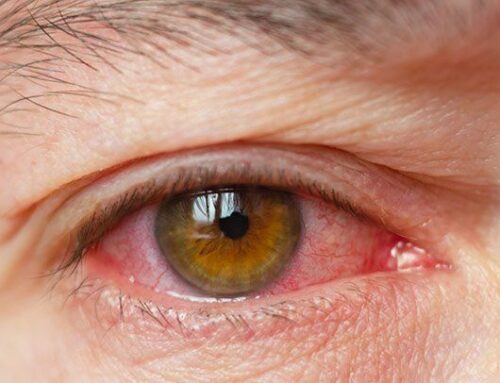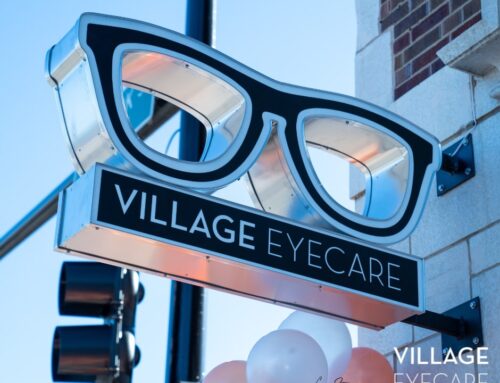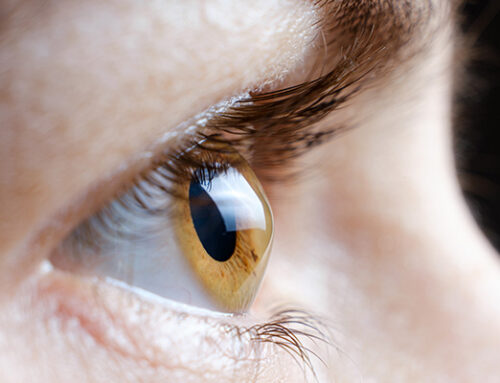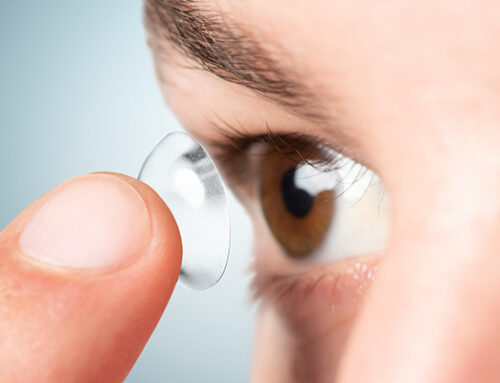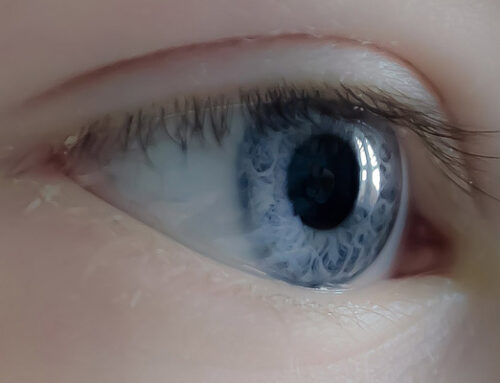What are the benefits of Blue Light Glasses?
Optical Store and Eye Exams in Chicago
What Are Blue Light Glasses and Do They Make a Difference?
Many people spend most of their waking hours staring at screens, exposing them to the potentially harmful effects of blue light. In fact, if you’re reading this on one of your screens, you’re exposing your eyes to blue light at this very moment.
All this screen time comes at a price: It can cause headaches, eyestrain, insomnia, and possibly eye disease. Blue light glasses (also known as computer glasses) have been touted to combat these problems head-on. But do they really make a difference to those who spend many hours a day staring at screens?
What Exactly Is Blue Light?
Blue light is a color in the light spectrum visible to human eyes — though it doesn’t actually appear blue to the naked eye.
It’s a short wavelength that produces high amounts of energy (from 400 to 500 nanometers) and is often referred to as high-energy visible light (HEV). In fact, any source of visible light emits blue light, whether it’s an artificial source like a digital screen or a light bulb, or a natural one, like the sun.
How Does Blue Light Affect Your Eyes?
It Obstructs the Wake/Sleep Cycle
Prior to the invention of artificial light, the sun regulated our sleep schedules. After sundown, the darkness signals to our bodies that it’s time to produce melatonin, the hormone responsible for enabling us to sleep.
Nowadays, we’re exposed to blue light throughout the day and late into the night. While exposure to any light in the evening hours delays the production of melatonin, blue light waves can be particularly problematic as they radically disrupt these signals, causing less melatonin to be generated.
This essentially throws off our natural body clocks, since the brain associates blue light with daytime, making it harder to fall asleep at night and wake up in the morning.
It May Heighten the Risk of Macular Degeneration
A 2018 study by the University of Alcalá suggests that a high level of blue light exposure may increase one’s risk of macular degeneration later in life, which can lead to permanent vision loss.
This is because blue light penetrates right through the cornea to the retina, damaging light-sensitive cells in the retina.
It Can Potentially Cause Eye Strain
Blue light scatters more easily than other visible light. This unfocused light reduces contrast and can contribute to digital eye strain, characterized by headaches, neck pain and blurred vision.
That’s where blue light glasses come in.
Research has indicated that lenses that filter out blue light significantly increase contrast. Computer glasses with yellow-tinted lenses may improve comfort levels when viewing digital devices for prolonged periods of time.
Are There Benefits to Wearing Blue Light Glasses?
As mentioned above, computer glasses reduce blue light exposure from computer screens and other digital devices. But are they worth getting?
According to the American Macular Degeneration Foundation, blue light can cause retinal damage “at greater intensities,” but the amount of light emitted by screens is quite low. Whether there is a cumulative effect requires further research.
Getting Blue Light Glasses
If you decide to get blue-light blocking lenses, you can find stylish options with or without a prescription. So if you’re farsighted and wear progressive lenses or bifocals, you can get single-lens computer glasses to match your prescription.
You may want to consider getting photochromic lenses, as they provide protection from both UV and blue light, whether indoors or out in the sun. These lenses seamlessly and automatically darken when exposed to UV rays outdoors, and become clear again when indoors.
Village Eyecare in Chicago offers a variety of blue light glasses and lenses. Contact us today to discuss the optimal lens features for your lifestyle and get fitted for your perfect pair.




